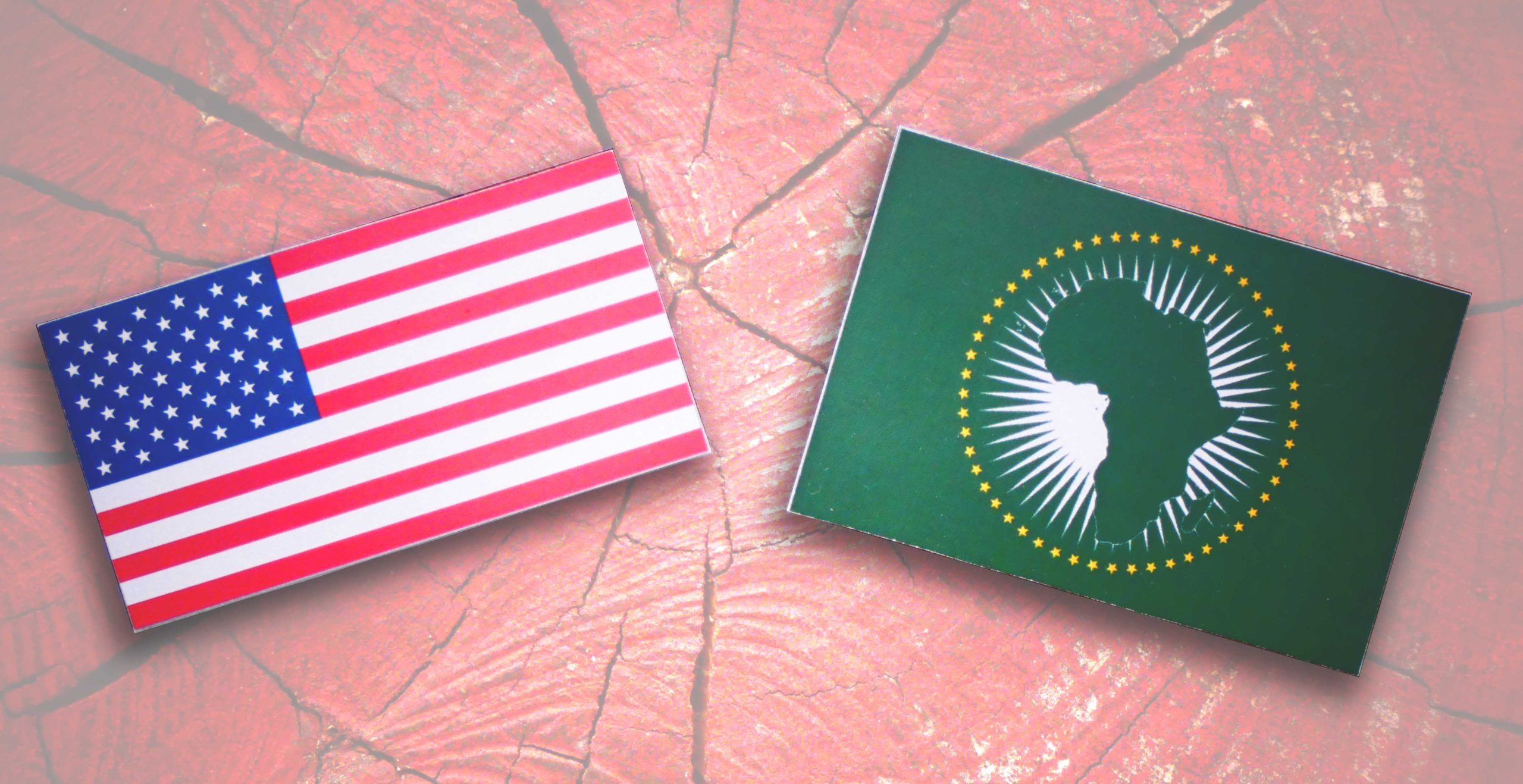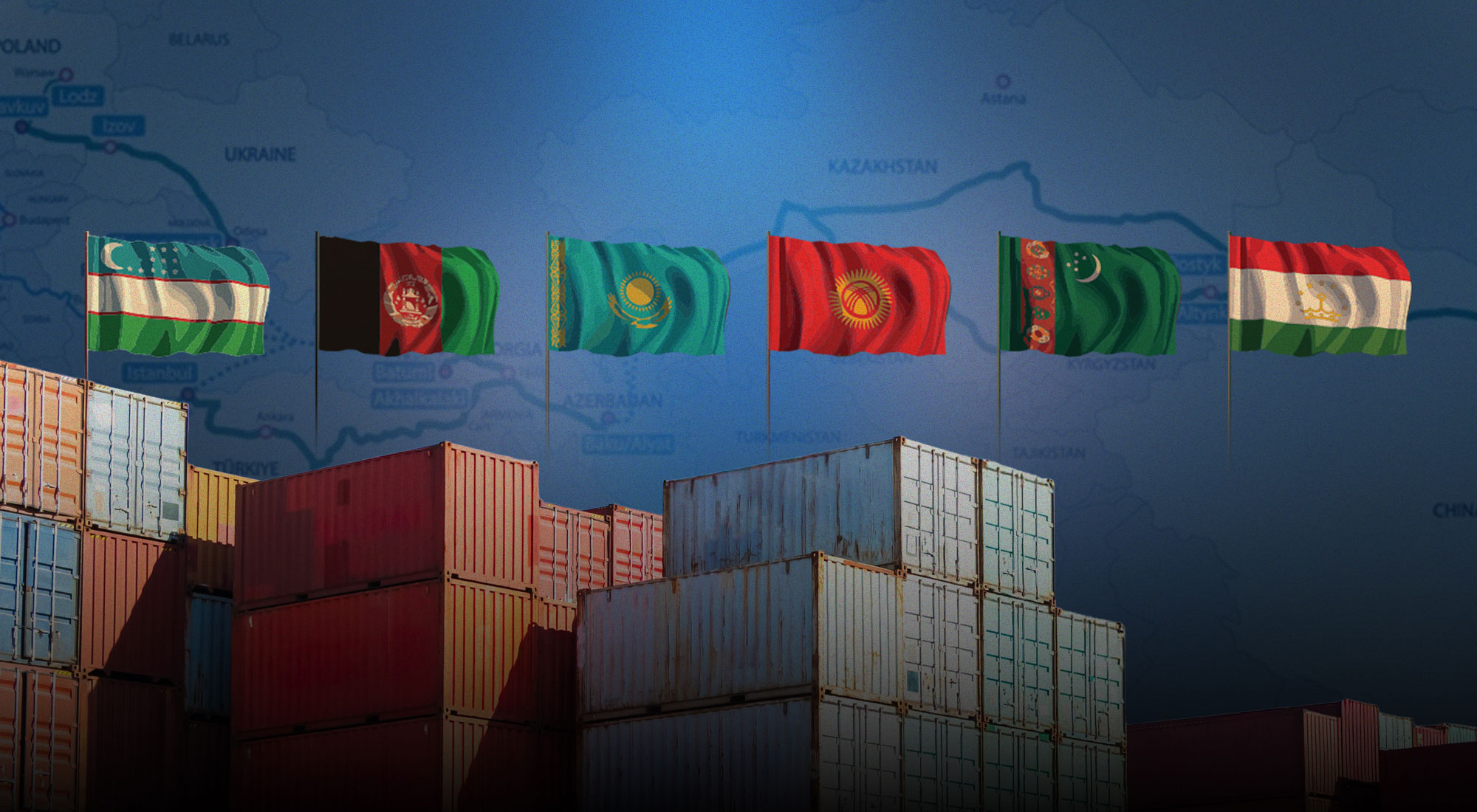Joe Biden’s assumption of power in the US on January 20, 2021, is expected to mark a fresh start in US-Africa relations. The relations deteriorated during the Trump administration, allowing China and Russia to play a prominent role in the continent at the expense of Washington’s influence. The new Biden administration would be under pressure to develop a new strategy toward Africa to undo the recent past and open new prospects for American influence in the continent. Such an approach would complement Biden’s efforts to reclaim Washington’s leadership role in the international system.
This paper seeks to evaluate the US policy toward Africa during the Trump administration and examines the possible change in this policy during the Biden administration. It also tries to identify the salient trends and issues shaping the US-Africa relations and their future.
The “absentee diplomacy”
As the US President, Donald Trump followed an “absentee diplomacy” policy toward Africa,[1] with the continent ranking at the bottom of his priorities list. His administration did not show enough interest in the continent. On the other hand, Trump’s “America First” policy led to a series of decisions that resulted in Washington’s disengagement from its obligations to Africa. Washington’s approval of a plan to reduce the US troops focused on counter-terrorism operations in Africa by almost 25 percent is a case in point.[2]
Trump’s Africa strategy issued in December 2018,[3] which included the “Prosper Africa”[4] initiative, failed to fulfill its promises. US-African bilateral trade plummeted from $100 billion in 2008 to $41 billion in 2018, and the US direct investment in Africa dropped from $50.4 billion in 2017 to $43.2 billion in 2019.[5]
During his term, Trump never visited Africa and met only three African presidents in the White House while in power (presidents of Egypt, Nigeria, and Kenya). He angered Africans by voicing racist statements describing African countries as “shit-hole” and a place where his friend went trying to get rich.[6]
Trump also sought to restrict funding to Africa by the international organizations and foreign aid programs, including health programs, on which the continent depends heavily.[7] He gradually turned away from counter-terrorism in Africa when he decided to cut the American military presence in the continent and withdraw his troops from Somalia in January 2021. He also sought to reduce American support for UN peacekeeping operations in Africa.
Even when Trump showed some interest in engaging with Africa, his goal was not to help in the continent’s development efforts and make it a strong partner who could play a global political and economic role but to counter the growing Chinese influence.[8] In other words, he considered Africa a site of competition with major powers, especially China and Russia, instead of strengthening American relations with it and presenting the US as a reliable alternative in trade and finance.
On the other hand, African leaders do not want to be stuck in the middle of international competition between the US and China. They want to work with several partners rather than be forced to choose one over the other. Their objective is to strengthen the continent’s development opportunities and overcome the challenges it faces.[9]
Although the American concern about the growing Chinese influence was the main determinant of Trump’s policy toward Africa, his neglect of the continent gave way to China to expand its influence. Beijing filled the vacuum by intensifying its diplomacy, diversifying its investments, and strengthening its position as the largest trade partner of African countries.[10]
The Biden presidency
There is optimism among the American and African circles about possible fundamental changes in the US policy toward Africa during the Biden presidency. This optimism stems from the belief that Democratic administrations are more aligned to Africa’s concerns and interests than Republican administrations. Most African Americans support the Democratic Party in presidential elections. In the 2016 presidential election, 8 percent of African Americans voted for Trump, while 88 percent voted for Democrat Hilary Clinton.[11]
There is also optimism that the Biden administration understands the importance of being a reliable and robust partner to Africa amid fierce international competition for influence in the continent. Hence, there may be a greater interest in strengthening diplomatic relations and providing development assistance to African countries in the coming period. The developments taking place in the world and Africa generate new issues of considerable priority on Biden’s agenda for Africa, such as climate change, combating the Covid-19 pandemic and entrepreneurship, in addition to the constants of US policy toward Africa, notably counter-terrorism, dealing with conflict spots, and democratic transformations.
Considering this background, the Biden administration will likely introduce fundamental changes in the US policy toward Africa to make Washington more engaged with its African partners. This likelihood is based on several indicators, including Biden’s conviction that the Trump administration failed on many fronts and led to the decline of the US leadership in Africa and globally. Biden confirmed this following his victory when he said: “America is back, ready to lead the world.”
Biden’s previous experience during the Obama administration will help develop an effective US policy, enhancing the US relations with Africa. His nominees for top positions in his administration have positive views on African issues, indicating that the US will pay more attention to the continent. Among these nominees, the candidate for Secretary of State, Antony Blinken, is known for his strong support for partnership with Africa. Linda Thomas-Greenfield, who is of African descent, has worked in Liberia, Kenya, Gambia, and Nigeria and served as the Assistant Secretary of State for African Affairs in the Obama administration.
Susan Rice, who served as the Assistant Secretary of State for African Affairs from 1997 to 2001, as an advisor to John Kerry in 2004, and to Obama in 2008, has also served as the US Ambassador to the United Nations from 2009 to 2013. Michelle Gavin, who is likely to become the Assistant Secretary of State for African Affairs, was the US Ambassador to Botswana from 2011 to 2014, the US Representative to the Southern African Development Community (SADC), and a Special Assistant to President Obama for African Affairs at the National Security Council.[12]
In light of these promising indications, possible changes in the US policy under the new administration are expected to focus on more economic and trade cooperation with the African continent and Washington’s engagement in promoting economic development in African countries. This could be in the form of American support for the African Continental Free Trade Area and the extension of the African Growth and Opportunity Act beyond 2025.
Washington may also quickly engage in some urgent issues in Africa. The prominent ones among these are the ethnic tension in the Ethiopian Tigray region and their impact on the security and stability of the Horn of Africa, support for democratic and economic transformation in Sudan, and confronting terrorist and security threats in Somalia after Trump’s decision to withdraw the US troops from there; in addition to the Libyan crisis and the stand toward updating the US Sahel and Sahara strategy.[13]
Traditionally, the US-Africa relationship has been characterized by signature initiatives. Ronald Reagan adopted “Constructive Engagement” initiative to end the apartheid regime in South Africa, Bill Clinton launched the “African Growth and Opportunity Act” initiative to strengthen trade and investment ties between the US and Africa, George W. Bush had the relief plan to combat AIDS in Africa, Barak Obama had “Africa Power” initiative and Donald Trump had the “Prosper Africa”[14] plan. Biden may likely focus on fighting pandemics in the continent, especially Covid-19.
Main trends and issues
During his election campaign, Biden was careful not to exaggerate in his promises to Africa, particularly in increasing US expenditure on aid and development. He was also careful not to mention any commitments that may lead to further US deeper involvement in security challenges, which face the African continent, precisely the challenges related to terrorist organizations.[15]
Nevertheless, many issues and trends are emerging, and they will most probably capture remarkable attention from the Biden administration in the realm of cooperation with the African continent. Susan Rice (Director of the United States Domestic Policy Council) and Karen Bass, a Congresswoman heading the influential Black Congress Members group, during a fundraising event for Biden’s campaign, both presented some visions about Biden’s future policy toward some pivotal issues in Africa, such as development, clean energy, public health, sustainable agriculture, and providing help in facing epidemics. They also talked about new initiatives on innovation, immigration, education, and investment.
Out of these visions, the new US administration trends emerge. They focus on some issues that guarantee strong relations with the African countries and safeguard Washington’s strategic interests in that continent. The most prominent of these issues are represented in the following:
- Relations with African countries: A remarkable change has occurred in Biden’s rhetoric, compared to Trump’s discourse toward Africa and African people. Biden revealed a positive willingness to restore the partnership based on mutual respect, revitalizing and activating diplomacy, reassuring African democracy and economic development, and support Obama’s initiative for young African leaders. Susan Rice indicated that restoring African countries’ trust is crucial, and Biden will hold positive dialogues with African countries.[16]
Based on these visions and principles, it is hoped that the Biden administration will improve relations with Africa. It is noteworthy that Biden enjoys a good reputation within the African circles since he was the vice-president during Obama’s presidency. During those days, Biden contributed to improving the US-African relations. His communication had amiability, and he appreciated the significant role of African immigrants inside the US.
- Supporting democratic transformations in Africa: Washington can monitor the political transformations in Africa, and enhance stability and democratic gains in the continent. This inclination stems from the principle of Washington’s commitment toward shared prosperity, peace, security, democracy, and the rule of law, as the essential principles of cooperation between the US and Africa.[17] Based on these principles, Biden may invite African countries to attend a conference, “Summit for Democracy,” which he intends to organize during his first year in power.[18] This summit will aim to renew democracies’ spirit worldwide, focusing on their common goal, commitment to fighting corruption and boosting human rights.
- Nurturing trade: Most probably, Washington will prioritize expanding its commercial relations with African nations. The idea is to confront the growing Chinese influence in Africa, which could be done by using a set of emerging commercial tools, such as the “Prosper Africa” initiative with a budget ranging from $500 million to $750 million and the new agency the United States International Development Finance Corporation (DFC) with investments amounting to $60 billion. Biden assured response to this in a survey distributed by the United States Councilon Foreign Relations (CFR). He said that Washington should give priority to economic growth in Africa by enhancing its commercial relations.[19]
There are also indications that Washington will most probably focus on enhancing its relations with some African countries representing strong economic hubs in the continent, such as Nigeria, Kenya, Angola, South Africa, Ethiopia, and Senegal, making these countries priority markets for the Biden administration. This would require improving the political and diplomatic relations with these countries and maximizing commercial cooperation.[20] Some assessments point to the possibility that Washington will give significant attention to the Democratic Republic of Kongo because it possesses an economy with bountiful resources and potential opportunities to revive the support of metals’ supply chains. Focus on Kongo can also divert production control (from these African resources) away from East and Southeast Asia. Washington will also complete negotiations with Kenya to make it the first African country that enjoys the advantages of a free trade agreement with the United States.[21]
- Terrorism and security threats: Washington will never back down from playing a major role in securing Africa’s main geostrategic regions. There are more than 6,000 US soldiers in about 12 military bases in various regions across the continent. This military presence might encourage US policymakers toward more involvement in supporting African security. Those threats are still looming, even if Biden’s focus shifted toward other security threats, including epidemics, cyber threats, and climate change.[22] Meanwhile, Washington is expected to focus more on fighting terrorism, which depends on special operations, exchange of intelligence with African and European countries, along with airstrikes instead of deployment of ground forces, as was the case in Somalia.
Most probably, Washington will enhance its relations and partnerships with some African countries severely hurt by terrorism, such as Nigeria, which is still suffering from Boko Haram’s terrorist operations; and Mali, which is significant in the western coastal region and the Sahara Desert.
Washington will probably restore its interest in the strong partnership with France, in Africa’s western coastal region, to fight terrorism, following the Obama administration’s interest in supporting France in Africa’s coastal region on a priority basis. Such an inclination would be the opposite of Trump’s policy, which reduced this partnership’s size by cutting funds to African countries.[23] This change may represent a reassuring message from Biden to the US allies in Africa, indicating that he will not unilaterally cut off security support.
- Supporting Africa in international forums: Under the Biden administration, Washington is expected to boost its support to Africa’s development agenda through international organizations, including World Health Organization (WHO), UN Framework Convention on Climate Change (UNFCCC), and World Trade Organization (WTO). This support will leave positive reflections on most African countries regarding funding and foreign aid given to the continent. Biden has pledged to ensure the US return to Paris Agreement regarding climate change and the US rejoining and resuming funding to WHO.[24] This return will enhance these international organization’s efforts directed to support the African continent. On January 21, 2021, Dr. Anthony Fauci, President Biden’s Chief Medical Advisor, addressed the WHO and assured the US intention to join “COVAX” mechanism, which aims to provide anti-Covid-19 vaccines to poor countries, including those in Africa.[25]
It is also probable that some African candidates will receive Biden’s support to hold international positions. Ngozi Okonjo-Iweala, the Nigerian economist and a contender for the President of WTO, and Nigerian Dr. Akinwumi Adesina, the President of the African Development Bank’s potential candidate, could be among these. Trump prevented both from holding these positions.[26]
Conclusion
Some preliminary indicators suggest that a dramatic leap could occur in the future of US-Africa relations besides cooperation on many interconnected issues of mutual interest. These likely transformations aim to secure and enhance the strategic interests of both parties. There is a feeling of obvious satisfaction overwhelming most African circles about the end of the Trump era. Africans are also satisfied with the Biden administration’s willingness to overcome the past’s negativities and to open new prospects in the US-African relations.
Nevertheless, we should not ignore the change in the prevailing international environment compared with President Obama’s reign. Noteworthy are the developments related to the growing international influence in Africa, especially the Chinese influence, and the global economic implications caused by the outbreak of the Covid-19 pandemic.
These developments might require the Biden administration to expedite and enhance new US policies toward Africa. In other words, at least in the primary stage after Biden came to power, a complete shift in Washington’s policy toward Africa is unlikely, simply because the focus will be on the US domestic challenges until Biden’s team devises a comprehensive strategy toward Africa.
References:
[1] Herman J. Cohen, What analysts are missing about Trump’s Africa policy? The Hill: https://bit.ly/35o59KZ
[2] “To focus on countering threats from China and Russia, the “Pentagon” reduces its troops in Africa,” Al-Watan newspaper, Cairo, November 16, 2018. [In Arabic].
[3] Michael Shurkin, The Good and Bad of the Trump Administration’s New Africa Strategy, Rand Corporation: https://bit.ly/3oF0onC
[4] Jonathan Gass, Trump’s Africa surprise, Atlantic Council, February 4, 2019: https://bit.ly/39lzOJS
[5] Francis Owusu, Padraig Carmody, Trump’s legacy in Africa and what to expect from Biden, The Conversation, 25 November 2020: https://bit.ly/2JXKJRj
[6] “What is the US plan to restore its influence in Africa,” BBC Arabic, August 1, 2019. https://www.bbc.com/arabic/world-49172972. [in Arabic].
[7] Peter Fabricius, ‘President’ Biden would have to take Africa much more seriously, Institute for Security Studies, October 9, 2020: https://bit.ly/3q8VO1q
[8] Landry Signe, A Trump visit to Africa is important—and carries some urgency, Brookings, April 19, 2019: https://brook.gs/3q68QfW
[9] Adva Saldinger, Taking stock of the Trump administration’s Africa policy, devex, June 4, 2020: https://bit.ly/3shTkjg
[10] Francis Owusu, Op. cit.
[11] Gilbert M. Khadiagala, Contextualizing the impact of the 2020 US elections on Africa, Africa Portal, September 14, 2020: https://bit.ly/3bnmQ12
[12] Who are some of the key figures nominated to be in Joe Biden’s cabinet? Euro News, January 18, 2021: https://bit.ly/2XRbMkG
[13] Souha Majidi, What Could President-elect Joe Biden’s African Strategy Be? Policy Center for The New South, November 26, 2020: https://bit.ly/3nDqKoT
[14] Francis Owusu, Op. cit.
[15] John Campbell, The Biden Administration’s Approach to Africa, Council on Foreign Relations, November 5, 2020: https://www.cfr.org/blog/biden-administrations-approach-africa
[16] Baker Mckenzie, Op. cit.
[17] THE BIDEN-HARRIS AGENDA FOR THE AFRICAN DIASPORA, Biden Harris: https://bit.ly/3nBBdkv
[18] Transition 2020 | Biden and Trade: Africa Policy Shifts Back to Traditional US Engagement, The National Law Review, December 1, 2020: https://bit.ly/3oFZTtx
[19] Baker Mckenzie, Op. cit.
[20] Joe Biden just won the presidency: What does that mean for America’s role in the world? Atlantic Council, November 7, 2020: https://bit.ly/2LrYEQh
[21] Alyssa Harvie, How a Biden presidency could change US relations with the rest of the world? Atlantic Council, Washington, November 13, 2020: https://bit.ly/3pYI0GL
[22] Marie Wilke, Op-ed: What will Joe Biden’s presidency mean for Africa? ESI Africa, January 7, 2021: https://bit.ly/3oDntHh
[23] Nicholas Norbrook, ‘Trump is the rupture in US-Africa policy, Biden much more engaged,’ The Africa Report, November 12, 2020: https://bit.ly/2XogBSd
[24] Baker Mckenzie, Op. cit.
[25] “America returns to the “World Health Organization” and joins “COVAX,” Al-Khaleej newspaper, Sharjah, January 22, 2021. [in Arabic].
[26] Marie Wilke, Op. cit.








